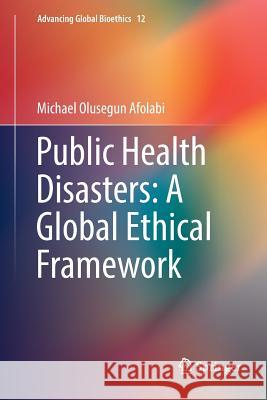Public Health Disasters: A Global Ethical Framework » książka
topmenu
Public Health Disasters: A Global Ethical Framework
ISBN-13: 9783030065119 / Angielski / Miękka / 2018 / 233 str.
Kategorie BISAC:
Wydawca:
Springer
Język:
Angielski
ISBN-13:
9783030065119
Rok wydania:
2018
Wydanie:
Softcover Repri
Numer serii:
000478406
Ilość stron:
233
Waga:
0.36 kg
Wymiary:
23.39 x 15.6 x 1.35
Oprawa:
Miękka
Wolumenów:
01
Dodatkowe informacje:
Wydanie ilustrowane











